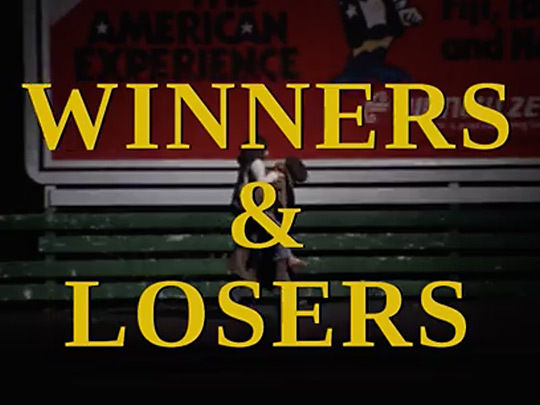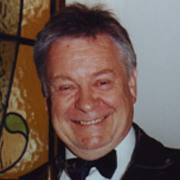If you want it done properly, do it yourself
Forty-five odd years ago if you wanted to make a Kiwi movie you were nuts. Okay then, maybe television instead? Unfortunately you could only make a TV drama if you were employed by state television, or the National Film Unit. Outsiders like Geoff Murphy had managed to made Tank Busters off his own bat, and John Barnett made The Games Affair series in 1974. But for Roger Donaldson and myself, there seemed to be no way open. So we resorted to Roger’s old maxim “If you want it done properly, do it yourself.”
I was in the middle of a self-inflicted crisis, holed up in an old villa on New North Road with no furniture, and a mantlepiece decorated with a jar of Marmite, a bottle of milk separated into a glob of white on top and clear water beneath, and a scrunched up pair of underpants. I was feeling sorry for myself, and Roger was being sympathetic. But our friend David Mitchell thought it was a hell of a joke. Out of that, the three of us decided to make a series of sketches about a guy going through what we grandiosely called a “midlife crisis.” (We were all turning 30!) Rog would borrow a camera and some lights, and we and anyone else who wanted to come on board would work for nothing.
We cobbled together Derek, a story about a 30-year-old-guy with a bored wife and two needy kids, who dreams of being hot and sexy, goes to his boring job and gets fired. When the farewell drinks don’t appear, he throws his own farewell party, declaring himself headed for better things, and disgraces himself with a down-trou.
State TV agreed to screen our little independent film. They insisted on cutting a shot of Derek from behind, stepping on the scales, then removing his jockstrap to lose a few ounces.
Here’s some of the letters to the editor that Derek inspired:
— "I watched with ever-increasing dismay, a piece of garbage calledDerek … We are all aware of office parties and the cavortings and antics of drunks... But dear God, who wants to commit such stuff to film?"
— "I cannot use polite language to describe the nausea it gave me … dirty, uncouth and sordid, and a complete bore."
— "What a depraved mind could think up such dirty rubbish as Derek... Youngsters watching this filth cannot help but be tainted."
The reviewers were kinder. One (Irvine Yardley) called it "a poem of escapism", "so close to the bone it hurt". Another (Sue McCauley) found it "a sympathetic and intelligent look at ourselves", that deserved acclaim. The Listener's Dick Campion weighed in with:
"As a study in modern-day morality — a man emasculated by the office machine and empty of spirit,Derek was a Kiwi Waste Land. Ian Mune is really something. Has anybody else his ability to project the New Zealand common man? The face is ugly, the voice grates, he sings abominably. Yet you watch him like you watch a time bomb."
The guts of all this is that the old protesters, hippies and varsity types of the 60s were now in positions of influence — and they thought Derek was terrific!
We got a call from Wellington lawyer Bill Sheat. He knew someone in the Education Department who thought a series of New Zealand short stories would be good in the classroom. However they didn’t have much money. But Bill thought the QEII Arts Council might be interested in getting involved. They were! So was David Fowler at the NFU. And, amazingly, the Aussie joker that state television had brought in as Controller of Programmes was keen too.
We had enough money to make a 30-minute film. We chose Katherine Mansfield’s 'The Woman At the Store'.
Rog had bought his own camera. Geoff Murphy and Andy Grant had designed and built a crane, so the camera could move forward and back, up and down and either side of sideways. Rog was on top of the visuals, "the look.” I worked with Peter Hansard to produce a script, and we were able to hire a real crew and real actors!
The Woman At The Store picked up Feltex Awards for Best Drama, Script and Actress (Ilona Rodgers). We were ready to go. All our investors were keen, and we launched into six more films based on Kiwi short stories: Winners & Losers.
From the start, Roger and I had a plan: by working together, we would learn to work alone. I knew about stories and actors, or a little bit, and he knew about filming. So we said we’ll co-produce the lot of them. We’ll co-direct the first two, then he can direct one, and I’ll act in it, so I’m still there; and then I’ll direct one and he’ll shoot it so he’s still there, holding my hand; and then I’ll direct one, and he’ll go have a holiday; and then he’ll direct one, and I’ll have a holiday.
In 1976 TV1 screened the series and it picked up a few more awards. But the real trick was to sell it internationally. We asked the Broadcasting Corporation how we should go about it. Unfortunately, all they could offer was the agent they bought their programmes from. “Use him,” they said. “He handles all our sales.” So what’s he sold? “Ahhhm, nothing yet.” How long has he been doing it? “Oh. Ever since we began.” So we were back to Rog’s old maxim: “if you want it done properly, do it yourself.”
We heard about a TV market in Cannes — MIP-TV. We had a little dosh left over from the shoot. The Broadcasting Corporation and the NFU, presumably amused at our foolhardiness, gave us some of their programmes to sell and a little more dosh, and off we went. For two weeks.
MIP was definitely not the Cannes Film Festival! It was more like the Kumeu A&P Show, with four floors of booths, all selling, not chickens, goats, cabbages and pumpkins, but TV programmes. There was a book with 3000 names; all the attendees, sellers (including us) and buyers. Where to begin? Fortunately an English sales agent took pity on us and marked up our book, indicating all the people who might be interested in our series from way downunder.
At the end of the week we had a bunch of people expressing an interest. But no contracts. We couldn’t go home with that, so decided to visit every one of them and get something signed. Ha! Not the way it worked. Between us we tracked down potential buyers in London, Paris, Amsterdam, Oslo, Stockholm, Berlin, Toronto, New York, Boston, Washington, LA. Most said the same thing: “Go home! We can’t commit to anything until the programme committee approves it.” So, when our two week trip had turned into eleven weeks we limped home. With nothing. Except that by the end of the year we had sales in many countries, and it just kept rolling on from there.
The next year every Kiwi and his/her dog was off to MIP-TV!
I went to Wellington to act in the Moynihan series, and Rog found a book he wanted to make a movie from. By the end of 1977 we had Sleeping Dogs.
Some years later the Peter Jackson bomb exploded and now we have Park Road Post, NZ On Screen, Ngā Taonga Sound & Vision, and a completely renewed Winners & Losers. To them all, from us — thank you!
Titles in the Winners & Losers series
After The Depression (from a story by Maurice Shadbolt) - In the late 1930s a couple set out on foot for a new job
Big Brother, Little Sister (Witi Ihimaera) - Two young runaways experience love and strength in each other’s company
Blues For Mrs Laverty (Maurice Duggan) - An aging piano teacher struggles to find connection in her disintegrating life
A Great Day (Frank Sargeson) - A fishing trip between two mates turns into an occasion for a darker rivalry
A Lawful Excuse (Barry Crump) - When Mick and Charlie get of out prison, their find an unusual way to make a living
Shining With The Shiner (John A Lee) - A swagger agrees to try to con a publican for some free drinks
The Woman at the Store (Katherine Mansfield) (Sold as part of Winners & Losers overseas, although it screened separately on NZ television) - Three arrivals at an abandoned rural store meet an unusual mother and daughter
- Ian Mune is a storyteller who has been known to act, write and direct.
Back to top
Breaking new ground
Shortly after completing Derek, Roger Donaldson and Ian Mune decided to have a go at something else.
It was Bill Sheat at the QEll Arts Council who suggested that a collaborative approach to funding films might work, by combining the interests of different investment partners. The Arts Council was interested in fostering indigenous filmmakers. The Education Ministry was willing to pay for English curriculum resources. State television wanted dramas. And the National Film Unit was prepared to chip in and foster more local production from independents.
The upshot was that Donaldson and Mune were able to cobble together $25,000 to go off and shoot The Woman At The Store (1975). The production would become the de facto pilot for a series involving six more stories.
The original story by Katherine Mansfield had its origins in a real life incident, during an extended camping trip Mansfield undertook at the request of her father. He didn't want her to return to London. Amongst journal entries cataloguing her Urewera wanderings, she muses about the spirit of her native country: “'gigantic and tragic — and even in the bright sunlight ... passionately secret.” Mune and Donaldson’s search for identity was altogether more shrewd.
The filmmakers were deliberately raising expectations with this new project. From their determinedly rude and improvised script for Derek, they now shifted their attention to the gold standard of Kiwi fiction — an author who was acknowledged as New Zealand's first great writer. The spooky and rather affecting story involves an encounter with a woman and her daughter in an isolated store.
The result was highly accomplished, with fine performances and an atmospheric treatment in both imagery and sound design. When The Woman At the Store screened on local television in March 1975, The Listener's Alexander Fry hailed it as “a thoroughly polished piece that evokes more than it portrays, and is, I predict, a certain candidate for this year’s Feltex Award”. Fry was right. The drama won writers Ian Mune and Peter Hansard the Feltex for Best Script in 1976.
Despite its low budget, The Woman At The Store was clearly a quality production. Not only were Donaldson and Mune emboldened to try their luck at making more, they were able to give their investors enough confidence to dig deep and offer more funds. So it was that the pair headed out into an Auckland winter in 1975, with half a dozen scripts ready to shoot. The same backers were involved, with a cash budget of $125,000 put up for the whole series.
Today, the notion of funding a TV drama series via the Education Department and Arts Council seems quaint. But it was a model of common sense, fusing common interests to reach a clearly thought out goal.
Donaldson recalls selling the importance of the idea that the series would reflect New Zealand culture. "We'd had enough of watching TV programmes and drama from overseas, particularly England and the US ... it was time to be reflecting our own culture on screen."
The first order of business was selecting the stories from a mountain of possibilities. The initial cull — with major help from Auckland University English lecturer Alan Smythe — focused on stories by more than 30 Kiwi writers. Ultimately, the main criteria was the suitability of stories for adaptation: dramatically, visually, and logistically. Mune and Donaldson worked with a variety of writers to hone the scripts: Smythe, Arthur Baysting, Roger Simpson, and Ross Jolly. Simpson would go on to write for television on both sides of the Tasman.
The next question was who was going to direct. Donaldson and Mune's clever plan was to begin by co-directing, and work towards the point where they directed episodes solo. Considering that all the films were location based, and made on a low budget, production was remarkably smooth. Each film took four weeks, working six-day weeks; two weeks for pre-production, and two weeks to shoot. The exception was A Great Day, which did not live up to its title in terms of weather conditions. This tale of a sunny day’s fishing was only graced by five days of sun. Most of it was made in those five days.
The other hiccup occurred on Shining With The Shiner, which lost a day’s production when the film went missing between the set and the lab. The material had to be reshot. Naturally, the missing film turned up straight afterwards.
Behind the camera were many people who would become leading lights of the push into feature films. Graeme Cowley and Rory O’Shea headed the camera department. Editors Jamie Selkirk and Simon Reece chopped most of the episodes together (Mike Horton and Howard Taylor cut one episode each). Geoff Murphy helped out. And let's not forget Donaldson and Mune, who went on to direct Kiwi classics like Sleeping Dogs and Smash Palace (Donaldson), and Came a Hot Friday and The End of the Golden Weather (Mune).
Most of the actors had little camera experience, but excelled on-screen, helping push back the perception that local performers lacked skill. The only well known faces were Mune, and British actor Ivan Beavis, who'd been a regular on Coronation Street. Within a few short years, names like Yvonne Lawley, Ilona Rogers and Ian Watkin would become better known.
Winners & Losers broke new ground in its marketing. It was the first locally made drama series to have appreciable sales overseas. Representing their work themselves, Mune and Donaldson gatecrashed the MIP-TV market at Cannes, then set off around Europe, before the duo headed to North America. Buyers were impressed at work of such quality from a country previously unknown for making screen drama. Among other places, the series would sell to Norway, Denmark, Sweden, Britain, France, Canada and the USA.
As screen historian Roger Horrocks points out, Winners & Losers also had an impact in education. "For several decades, it was the most commonly used example of New Zealand filmmaking in classrooms. It was ideal for the teaching of English, and just the right length for a class period. The series was made freely available to schools through the National Film Library — countless secondary school students watched it."
Producer Dave Gibson and others would follow the path blazed by Mune and Donaldson, establishing independent production companies on a similar model: producing films that were story-driven, uncompromising, and targeted at both local and international audiences.
- Costa Botes is a writer and filmmaker, whose work as director includes The Last Dogs of Winter and Forgotten Silver (which he co-directed with Peter Jackson).
Back to top
Restoring Winners & Losers
Colourist Jon Newell takes pride in making old images look fresh again. Newell worked on the restoration of Winners & Losers with the show’s creators, Ian Mune and Roger Donaldson — plus cinematographer Graeme Cowley. “We're about removing all the distractions," says Newell. "The filmmakers never asked for sparkle and dust and scratches."
Says Mune: “It’s the first time that Roger and I have seen Winners & Losers the way it's supposed to look”.
Mune is sitting at the back of a colour grading suite at Wellington facility Park Road Post Production, while Newell mans the control desk. On the screen in front of them, Mune and Ilona Rodgers are riding through a field on horseback. The luminous images were captured over 40 years ago, on 16mm film. The array of computer power at Newell's command has seen the removal of scratches, and fading and flicker caused by age; the film grain has also been minimised.
Age isn't the only cause of decay. Before digital technology transformed the screen industry, footage was often copied multiple times during post-production; the image lost quality each time.
The restoration process combines computer wizardry and human hard work. “First we do the physical inspection and repair, we do a bit of a clean," says Newell. "Then we can scan it at a very high resolution. We basically go through and make a digital file of every single frame. Then we paint out every single piece of dirt and sparkle". Programmes remove a wide array of defects from the image, while waveform monitors help analyse which part of the colour spectrum has faded most over time. Sound experts do their own magic on the soundtrack — magnetic tape can degrade too.
There are two schools of thought about restoration: for some, the holy grail is to recreate the material, exactly as it was when it emerged from the lab. Others — including almost everyone in the grading room today — feel there's no harm in making further minor improvements, while a project is being revisited. Especially if you're the kind of director who is keen to tweak say the colour of the sky, in the background of a scene. Such changes were far more difficult to achieve back when Winners & Losers was first made.
Only a single shot got re-edited during the restoration of the series. Instead tweaks were made to the colouring of some shots; for example improving the weather on episode A Great Day. But the opening sequence was another story. The master negative proved impossible to find. If the opening was going to stand proud beside the restored version of the show, it would need some special treatment of its own. Park Road solved the problem by finding the required shots among the scanned negatives of the episodes. Two shots were nowhere to be found, and were replaced by two similar shots that met Mune and Donaldson's requirements.
Cinematographer Graeme Cowley, who shot two Winners episodes — and was a key figure in Park Road Post's restoration of classic New Zealand feature Utu — says that ultimately the heart of the restoration process "is to make the film accessible for modern audiences, while being true to the original".
As for Newell, his job is that much easier when the original director or cinematographer are a key part of the restoration process. "There's no guesswork" — he glances towards Ian Mune — "it's what you intended." Replies Mune: "It's what we originally intended, but couldn't always achieve with the technology of the day".
Initiated by NZ On Screen, the restoration of Winners & Losers by Park Road Post Production was made possible through funding from the NZ Lottery Grants Board and NZ On Air, with support from Ngā Taonga Sound and Vision.
Park Road Post Production is a purpose-built facility providing sound and picture finishing for a range of screen productions. It is committed to supporting emerging and established New Zealand filmmakers.
Back to top
More on the original stories and their authors
By
NZ On Screen team
23/05/2018
A set of tie-in booklets for the Winners & Losers series — containing the script, and information on adapting each short story for the screen — was published by the Department of Education in 1977, and in an updated version in 1993 (by Learning Media). Book Film and Fiction - Studies of New Zealand fiction and film adaptations (Longman Paul, 1985), by Bill Lennox, includes chapters on the screen adaptations of 'After the Depression' and 'Lawful Excuse'.
After the Depression
Maurice Shadbolt's original short story 'After the Depression' was published in his first collection of stories, The New Zealanders (Eyre and Spotswoode, 1959), and in his Selected Stories (David Ling Publishing, 1998).
Read about Shadbolt's work on-screen here, and watch this appearance on arts show Mercury Lane. Shadbolt wrote two autobiographies: One of Ben's - A New Zealand Medley (David Ling, 1993) and From the Edge of the Sky - A Memoir (David Ling, 1999).
Big Brother, Little Sister
Witi Ihimaera's short story 'Big Brother, Little Sister' was first published in quarterly Te Ao Hou 75 in March 1974. Read the story here. A revised version was published in Ihimaera's second short story collection The New Net Goes Fishing (Heinemann Publishers, 1977) and in Kingfisher Come Home - The Complete Māori Stories (Secker and Warburg, 1995).
Read about Ihimaera's work on-screen here — plus watch these documentaries about him from 1982, 1987, and 1997.
Blues for Miss Laverty
Maurice Duggan's story 'Blues for Miss Laverty' was first published in Landfall 56 (December 1960). It was later collected in Duggan's short story collection Summer in the Gravel Pit (Blackwood and Janet Paul, 1965), and Collected Stories (Auckland University Press, 1981).
A Great Day
Frank Sargeson's story 'A Great Day' was first published in Bulletin on 17 November 1937. It was later collected in short story collection A Man and his Wife (Caxton Press, 1940), Collected Stories (Blackwood and Janet Paul/ Victor Gollanz, 1964) and The Stories of Frank Sargeson (Penguin, 1982).
Watch this 1998 documentary about Sargeson. Michael King, who did the interviews for it, also wrote biography Frank Sargeson - A Life (Penguin, 1995). Sargeson's three volumes of autobiography were later combined in one volume as Sargeson (Penguin, 1981).
A Lawful Excuse
Barry Crump's short story 'Lawful Excuse' was first published in the Weekly News on 3 November 1965. It was revised (including a new ending) for Crump's first short story collection Warm Beer and Other Stories (AH and AW Reed, 1969). It also appears in Bedtime Yarns (Hodder Moa Beckett, 1997).
For Barry Crump, check out The Life and Times of a Good Keen Man: An Autobiography (Hodder Moa Beckett, 1992) and Colin Hogg's A Life in Loose Strides: The Story of Barry Crump (Hodder Moa Beckett, 2000).
Shining with the Shiner
John A Lee's stories about Ned Slattery are collected in Lee's books Shining with the Shiner (FW Mead, 1944) and Shiner Slattery (Collins, 1964). Co-directors Ian Mune and Roger Donaldson wrote of the Shiner episode that it "does not exist as a short story in Lee's book. We have drawn material from the original, concentrating on the character himself ... all of the tricks are taken from different stories".
The Woman at the Store
Katherine Mansfield's original short story 'The Woman at the Store' was first published in English literary magazine Rhythm 4, in Spring 1912. Read the magazine here. Later it was part of Mansfield's posthumous collection Something Childish and Other Stories (Constable & Co, 1924), and The Collected Stories of Katherine Mansfield (Wordsworth Editions, 2006).
Watch this 1986 documentary on Mansfield, or this excerpt from 2011 Bliss. Or read this 1933 biography by Ruth Elvish Mantz and Mansfield's husband John Middleton Murry (via the NZ Electronic Text Collection).
Back to top



